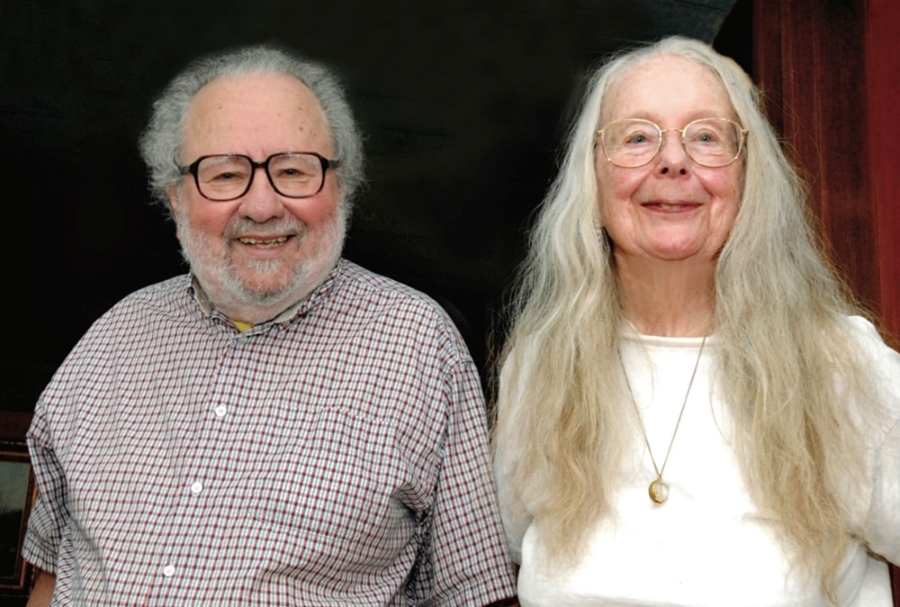NYU Courant Mourns the Loss of Professor Martin Davis
Martin Davis passed away on January 1, 2023 at the age of ninety-four. Professor Davis was a faculty member at Courant from 1965 until his retirement in 1996. He was instrumental in the founding of our Computer Science department in 1969, serving as a charter member. Professor Davis’ work centered on computability theory and mathematical logic.
He was born on March 8, 1928 in New York City to Helen Gotlieb and Harry Davis, both of whom had recently emigrated from Poland. The Davis family settled in the Bronx, where Helen and Harry supported their sons by selling embroidered clothing and household linens out of the front room of their apartment. Davis began attending the Bronx High School of Science in 1940, just a few years after its founding. Here, he developed his interest in mathematics against the backdrop of the Second World War. He graduated in 1944 and enrolled in the City College of New York.
At the City College of New York, Davis met and was greatly influenced by the logician Emil Post. Their conversations formed the basis of much of Davis’ later work. After completing his undergraduate degree, Davis pursued his graduate studies in Mathematics at Princeton in 1948. He described a “heavy culture clash” with his fellow students, stating that his working-class background made him feel like an outsider at the university. Nevertheless, he completed both his Master’s and Ph.D. within two years, writing his thesis On the Theory of Recursive Unsolvability under the supervision of Alonzo Church.
In 1950, Davis was appointed as a research instructor at the University of Illinois at Urbana-Champaign. Once there, he joined the Control Systems Lab and began working on the ORDVAC, making him one of the world’s earliest computer programmers. Urbana-Champaign is also where Martin Davis first met Virginia Whiteford Palmer, a Smith College graduate studying Library Science at the University of Illinois. The pair wed in September of 1951 and would go on to welcome two sons, Harold and Nathan.
During the 1950s, Davis held a variety of academic positions and continued his research in logic and computability theory. He had been fascinated by Hilbert’s tenth problem—an algorithm to solve general Diophantine equations—since his undergraduate lessons with Emil Post, who conjectured that the problem was undecidable. In 1949, Davis achieved an important first step toward proving this. Over the next decade, Davis continued work on Hilbert’s tenth problem in collaboration with Julia Robinson and Hilary Putnam. Yuri Matiyasevich finally completed the proof in 1970, resulting in the MRDP theorem (an abbreviation of Matiyasevich–Robinson–Davis–Putnam). In 1961, Davis developed the DPLL algorithm for solving Boolean satisfiability alongside Hilary Putnam and their students George Logemann and Donald Loveland. This algorithm remains the foundation of the powerful current technology for solving these problems.
In 1965, Davis joined the faculty of the Courant Institute, where he would remain for the next thirty-one years. He co-founded the Computer Science department in 1969. Though he was a mathematician by training and continued to make major contributions to mathematics, Davis recognized that the emerging field had its own unique needs and culture. During his time at Courant, Professor Davis was an educator and researcher of the highest caliber. He was elected to the American Academy of Arts and Sciences in 1982 and was awarded a Guggenheim Foundation Fellowship in 1983. Davis retired in 1996 and was named Professor Emeritus.
Throughout his career, Davis was an accomplished and prolific writer on topics in mathematics, computer science, and the history of computing. His books include Computability and Unsolvability, a seminal text in the area; Engines of Logic: Mathematicians and the Origin of the Computer; A First Course in Functional Analysis; and Applied Nonstandard Analysis among others. He was awarded both the Leroy P. Steele Prize and the Lester Ford Award in 1974 for his expository writing about Hilbert's tenth problem, and—together with Reuben Hersh—the Chauvenet Prize for their article on nonstandard analysis.
After his retirement, Martin and Virginia traveled widely and settled in Berkeley, California. Martin remained active in the mathematical community around UC Berkeley and served as assistant to Virginia, who was a renowned fiber artist. The couple were constant and loving companions for the entirety of their seventy-one-year marriage. Martin and Virginia Davis passed within a few hours of one another on New Years Day earlier this month. The entire Courant community sends heartfelt condolences to Martin and Virginia's family and friends. We remain ever grateful for their immense contributions to our Institute. You may read a longer biography of Professor Davis at this link.

Martin and Virginia Davis, photograph by Peg Skorpinski, from ams.org/notices
